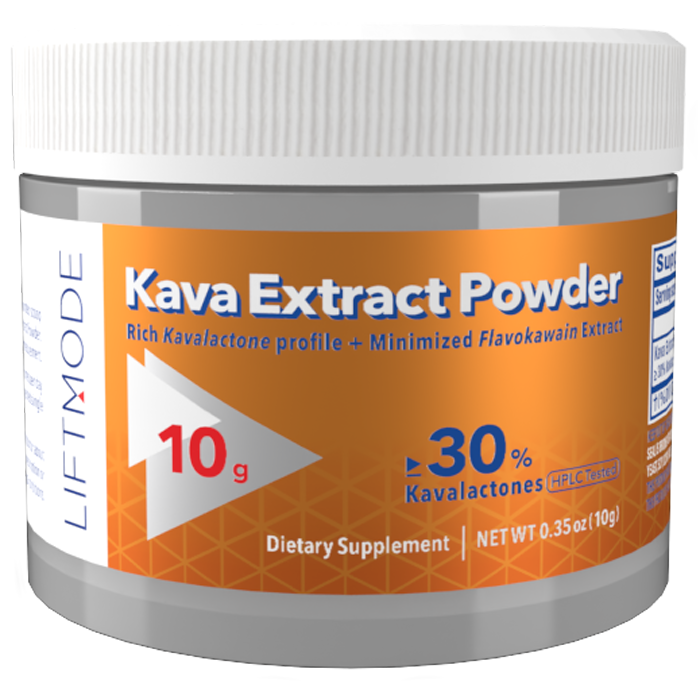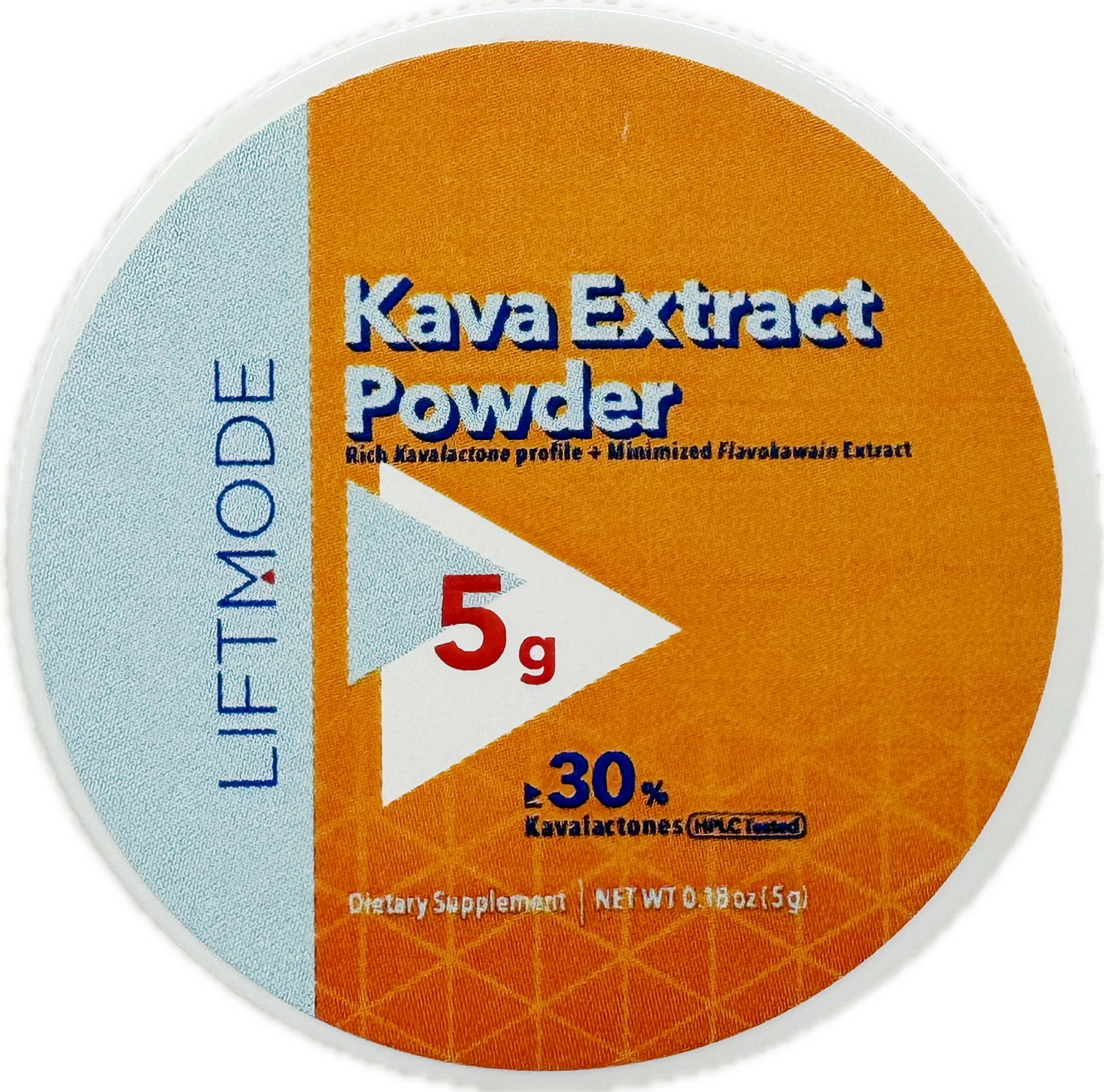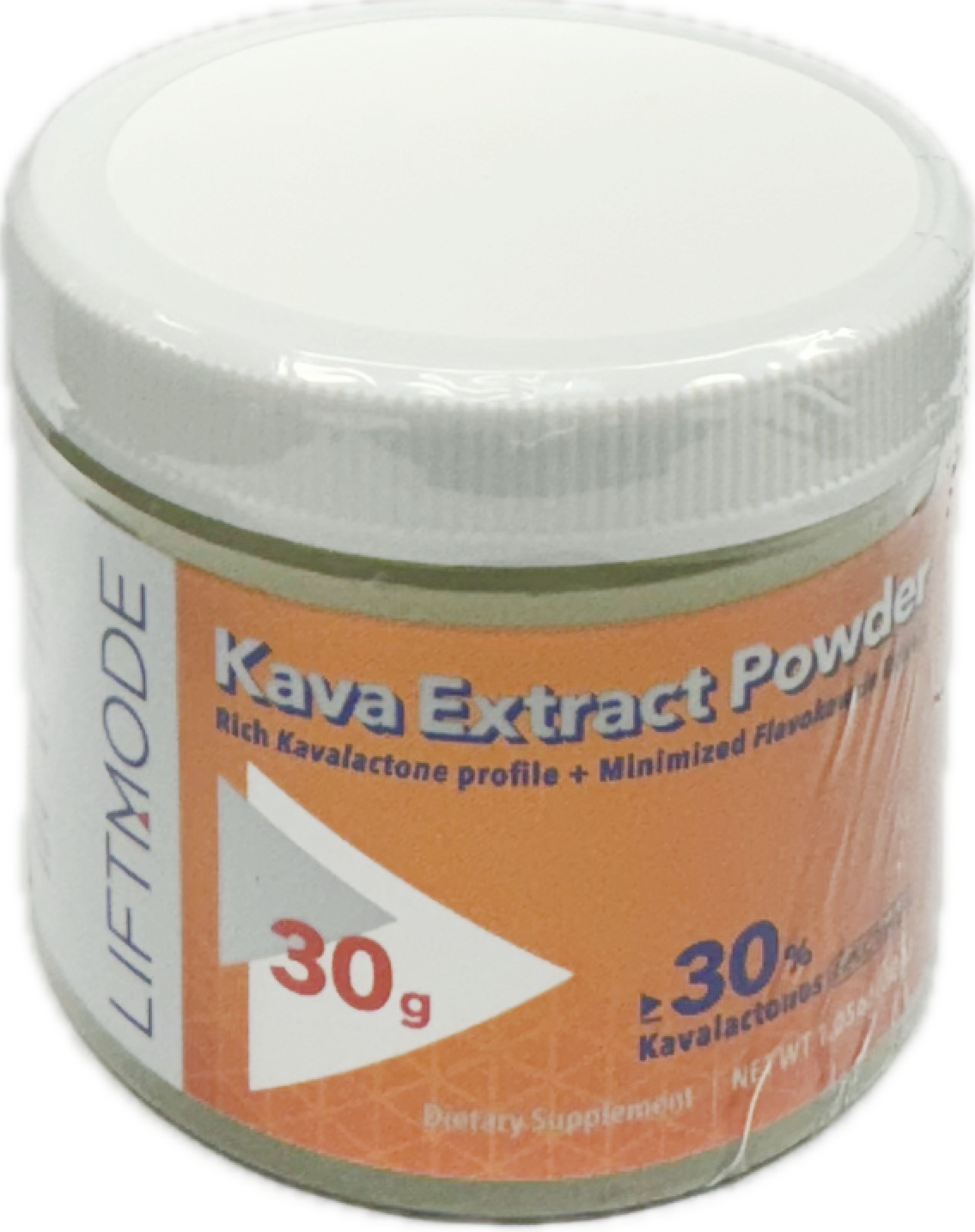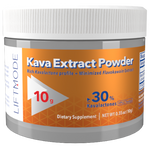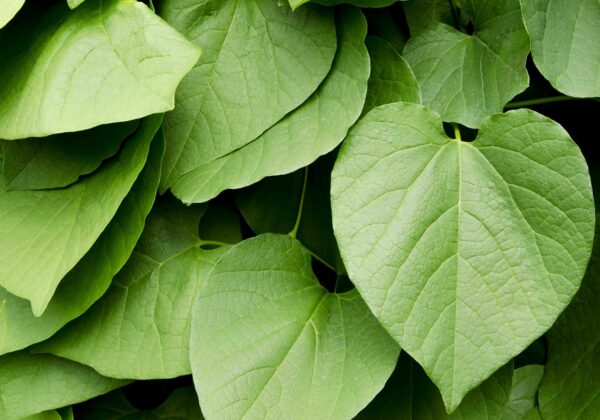Kava root has historically been used as a ceremonial herb in the Pacific Islands, but has gained mainstream popularity for its calming, stress-reducing, and sociability-enhancing properties. Our Kava extract powder is a liver-friendly form extracted from Noble Vanuatu Kava root.
As a stable, free flowing powder, LiftMode Kava extract powder is a potent addition to calming or mood brightening stacks, and its deep, peppery taste can be avoided entirely with the use of an oblate disc. Alternatively, seasoned Kava purists may prefer to simply stir it into a traditional coconut milk suspension, a method of delivery most similar to the ceremonial serving of Kava in the pacific islands. Source your own coconut shell cups, and relaxation is at your fingertips.
Kava Extract Chemotype
Our current Kava 30% Extract Chemotype is 423651 - a favorable Noble Kava chemotype, characteristic of Vanuatu noble Kavas, offering a well-balanced heady and uplifting, relaxing (but not heavy), and mood-lifting effect.
Kava Root Extract Benefits and Uses
Kava root extract is used for a variety of benefits. Many use Kava for its strong relaxing effects, which also enhance sleep quality and improve mood and sociability. The extract of Kava root contains kavalactones and their bioactivities and benefits continue to be studied.
The potent calming properties of Kava are what make it the perfect choice for an evening routine or a laid-back social event.
Kava root is known by a number of alternative names, including:
- Piper methysticum
- Kava Pepper
- Ava Pepper
- Kava Kava
- Intoxicating Pepper
- Awa
- tonga
- yangona
- sakau
Scientific Consensus
In the US, supplementing with Kava is considered to be relatively safe when taken at the recommended serving size, for short periods of time. However, there are some considerations for liver safety with regards to long-term use – especially when taken at larger serving sizes.
For more discussion on flavokavains, potential adverse effects, and the body of research surrounding the effects of Kava, please read our ‘Disclaimer & Other Info’ section on this page.
Shipping Restrictions
Several countries do not permit the import of Kava products. We cannot ship Kava to the following countries: Any country located in the EU (except Poland), Switzerland, New Zealand, Norway, Iceland, United Kingdom.
Please ensure that your country does not have any import restrictions on Kava before attempting to import our products.
